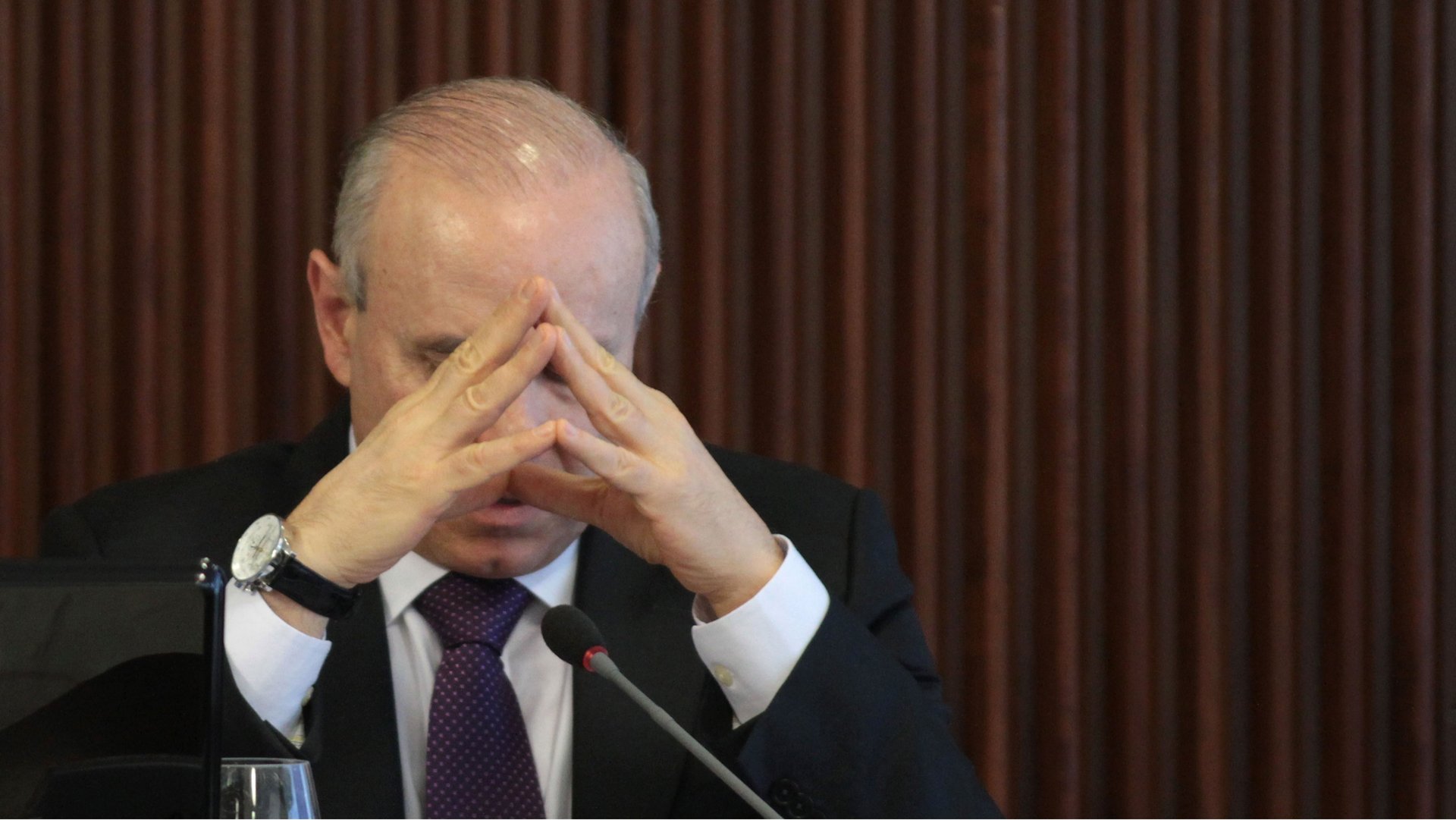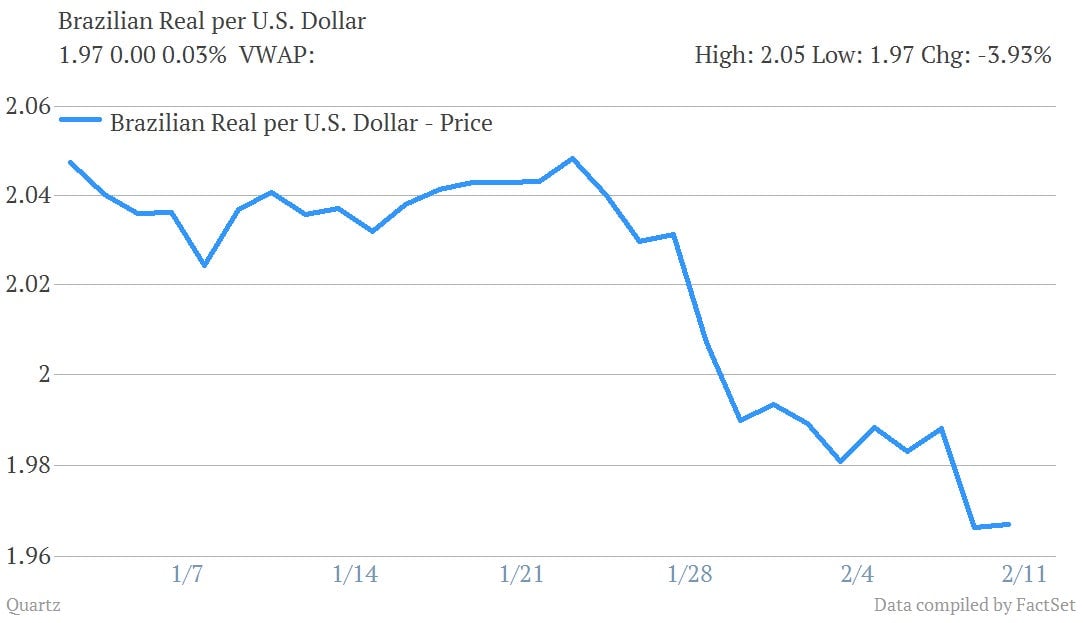Global currency traders push toward Brazil’s new line in the sand
The financial markets want to know if Brazil finance minister Guido Mantega, famous for raising the specter of global currency war, is willing to fight one right now.


The financial markets want to know if Brazil finance minister Guido Mantega, famous for raising the specter of global currency war, is willing to fight one right now.
As we’ve pointed out before, it doesn’t look like it.
Late Thursday, Mantega seemed to soften his long-held view that the government should stand ready to counter excess appreciation of the real, which makes Brazilian goods more expensive for foreign buyers. Reuters reports:
In an interview with Reuters late on Thursday, Finance Minister Guido Mantega sounded more amicable to a stronger exchange rate as he mentioned the 1.85 per dollar threshold as an example of a level that will not be tolerated.
Global currency traders smelled what seemed like a Brazilian retreat on currency strength, and promptly pushed the price of one dollar toward Mantega’s 1.85. The real touched 1.99 per dollar in Friday’s trading session, according to FactSet. The real is about 4% stronger against the US dollar since the start of the year, when it was hovering around 2.05 per dollar.

So what’s going on here?
The short version is that Brazilian policy makers are in a bit of a pickle. The economy is showing signs of softness. Normally to counter that, interest rates would be cut. But if the central bank did that now, it would likely add fuel to the fire of rising inflation. (Over the last 12 months, inflation has been over 6% in Brazil, far above the official target of 4.5%.) So what is to be done?
Well, according to Barclays analysts’ recent note, not a lot at the moment.
Brazilian policymakers seem to be in wait-and-see mode, recognizing that growth was weaker than expected, but that it is likely to recover. Better business and consumer sentiment, lagged effects of monetary easing, credit recovery and an expansive fiscal policy all support a better investment environment.
In the meantime, allowing the Brazilian real to appreciate helps put a damper on inflation there. But of course, there’s always a change that traders push too much and Brazilian authorities are prompted to buy dollars and sell real in order to weaken the currency. That would send global currency traders scurrying.